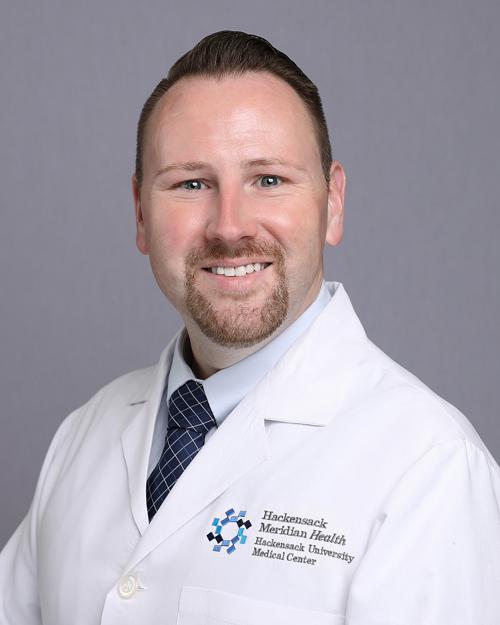The Robert L. Berkowitz, M.D., Ph.D. Advanced Heart Failure & Pulmonary Hypertension Center at Hackensack University Medical Center
Plan Your Visit
Address
20 Prospect Avenue
Suite 201
Hackensack,
NJ 07601
Hours
Contact
Interested in scheduling an appointment?
Providers at this LocationLocation Summary
About Us
Hackensack University Medical Center stands as a beacon of innovation in advanced heart failure and cardiomyopathy care. According to US News and World Report 2024 rankings, it has the best Cardiology, Heart & Vascular Surgery program in New Jersey.
Hackensack University Medical Center’s Advanced Heart Failure Center offers comprehensive care for patients with heart failure with a full range of mechanical circulatory support options for both short and long term treatment. We also have the full range of medical and novel device options for the advanced heart failure patient. Hackensack's commitment to patient-centered care ensures that patients receive the most advanced and effective treatment options available.
The multidisciplinary team of heart failure and structural heart specialists and nurse practitioners collaborate closely with patients and referring physicians to tailor treatment plans and provide ongoing support throughout their journey.
We are proud to have the best Advanced Heart Failure Care in New Jersey, which is nationally recognized by multiple accreditations. The accreditations include The Joint Commission Disease Specific Care Certification Program for Heart Failure and Ventricular Assist Devices, The American College of Cardiology Heart Care Center designation, and the “Get With The Guidelines” Heart-Failure Gold Plus Award.
We also offer a Regional Clinical Program of excellence dedicated to the care of pulmonary hypertension. Pulmonary hypertension is a complex disease which results in high blood pressure in the lungs. It is often associated with heart failure. Pulmonary hypertension can be a slow progressive debilitating disease which usually causes subtle physical changes over time. Our priority is for early referral, diagnosis, monitoring, and treatment of this progressive complex disease. Our commitment focuses on helping patients maintain their quality of life, maintain their functional capacity, and maximize the best treatment options available.
By embracing cutting-edge technologies and prioritizing patient outcomes, Hackensack University Medical Center offers hope and improved quality of life for patients with complex cardiac conditions.
What is Heart Failure:
Heart failure occurs when the heart doesn’t pump as efficiently as it should to deliver oxygen and nutrient-rich blood to the body. This results in fatigue, shortness of breath and fluid retention that can permanently damage your heart. This does not develop suddenly, but happens over time as the heart’s pumping ability declines and cannot keep up with the workload.
The pumping function of the heart is measured by the Ejection Fraction or EF. A normal Ejection Fraction is between 55-65%.
Causes of Heart Failure:
- Valve problems
- Occurs when one or more of the heart’s four valves don’t function properly. Mainly when the valves don’t open and close properly.
- Chronic high blood pressure (Hypertension)
- Happens when the force of your blood pushing against the walls of your arteries is consistently too high
- Restrictive Cardiomyopathy such as Amyloid
- This is a protein metabolism disorder which creates complexes that go to the heart and replace normal heart tissue. Long-term this affects the heart drastically.
- Heart Attack or Coronary Artery Disease
- Occurs when the heart muscle doesn’t get enough oxygen because blood flow has been blocked or somehow limited causing the heart muscle to lose its strength or function.
- Pulmonary Hypertension
- The blood vessels that bring blood to the lungs are narrowed and thickened, causing high blood pressure in the lungs. This condition makes it harder for the heart to pump blood to the lungs, which can damage the heart and lungs.
Specific Treatments
Advanced heart failure can be treated with non-invasive therapies, including the following:
- Medications
- Medications to control heart failure symptoms.
- Customized treatments based on individual patient needs
- Extensive Patient Education
- Experienced nurse educators to ensure patients and families under treatment plan and disease process in a supportive environment
- Multidisciplinary team consultations to determine the best plan of care/treatment options including the Optimizer and Barostim
However, advanced heart failure treatment plans can also include implantable devices to help with the heart function (pumping ability).
- Internal defibrillators
- Implantable Cardioverter-Defibrillator: An ICD (implantable cardioverter-defibrillator) is a small device placed in the chest that monitors the heart rhythm and delivers electric shocks to stop irregular heartbeats.
- Pacemaker Implantation - to help stimulate the heart to beat better
- A pacemaker is a small device that’s placed in the chest to help the heart beat regularly by sending electrical signals. This can improve the quality of life for people with slow or irregular heartbeats and can prevent serious complications.
- Impella Heart Pumps
- A temporary heart pump that can allow the heart to rest during an acute or emergent event. It will pump blood to the rest of the body while the heart heals or bridges to a next level of support.
- Ventricular Assist Device
- A VAD is a device that helps a weakened heart pump blood to the rest of the body. This can bridge patients to heart transplantation or serve as therapy for those who are not transplant candidates.
Our physicians have the most advanced training and education with collaborative relationships for heart transplant.
Pulmonary Hypertension Treatment Options
Pulmonary Hypertension treatments include oral tablet medications, inhaled or nebulizer devices, subcutaneous, or intravenous therapy. Pulmonary and cardiac rehabilitation programs are also offered to help patients improve their exercise capacity and efficiency of the heart and lungs. In some conditions of pulmonary hypertension, we can use a small sensor, about the size of a paperclip, placed in the pulmonary artery called a Cardiomems, to measure blood pressure in the lungs. We also refer patients with advanced pulmonary hypertension for lung transplant evaluation when necessary.
Why Choose Our Program?
Patient-Centered Approach
At the heart of our practice and the program at Hackensack University Medical Center is a commitment to patient-centered care. We prioritize open communication, collaboration, and compassion, ensuring that patients feel supported and empowered throughout their journey with us.
Referring Physician Collaboration
We understand the importance of collaboration with referring physicians in providing seamless care for our patients. Through open communication and shared decision-making, we work closely with referring providers to ensure continuity of care and optimal patient outcomes.
Discover the Difference
Whether you're a patient seeking advanced treatment options or a referring physician looking to partner with a trusted cardiovascular center, we invite you to discover the difference of our cutting-edge cardiac surgery practice at Hackensack University Medical Center. Your heart health is our priority, and we're here to provide you with the highest quality care every step of the way.
Darrin's Story

Jersey City Man’s Life Saved by Implanted Heart Device
Darrin Wilkins was experiencing advanced heart failure, but a life-saving heart device is giving him new hope and adding years back to his life.
Contact Us
To refer a patient for advanced heart failure or pulmonary hypertension management at Hackensack University Medical Center, please visit our website at https://www.hackensackmeridianhealth.org/en/services/heart-care/heart-failure.







